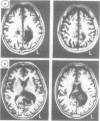Abstract
A case study investigates the writing, spelling and praxic skills of one patient who was found to have a selective impairment in his ability to write letters and words in the absence of difficulty in copying these same letters and words. He appeared to have difficulty accessing the correct motor programmes or sequences for writing which we term "ideational agraphia" analagous to the syndrome of ideational apraxia. These findings are related to Margolin's information-processing model of writing.
Full text
PDF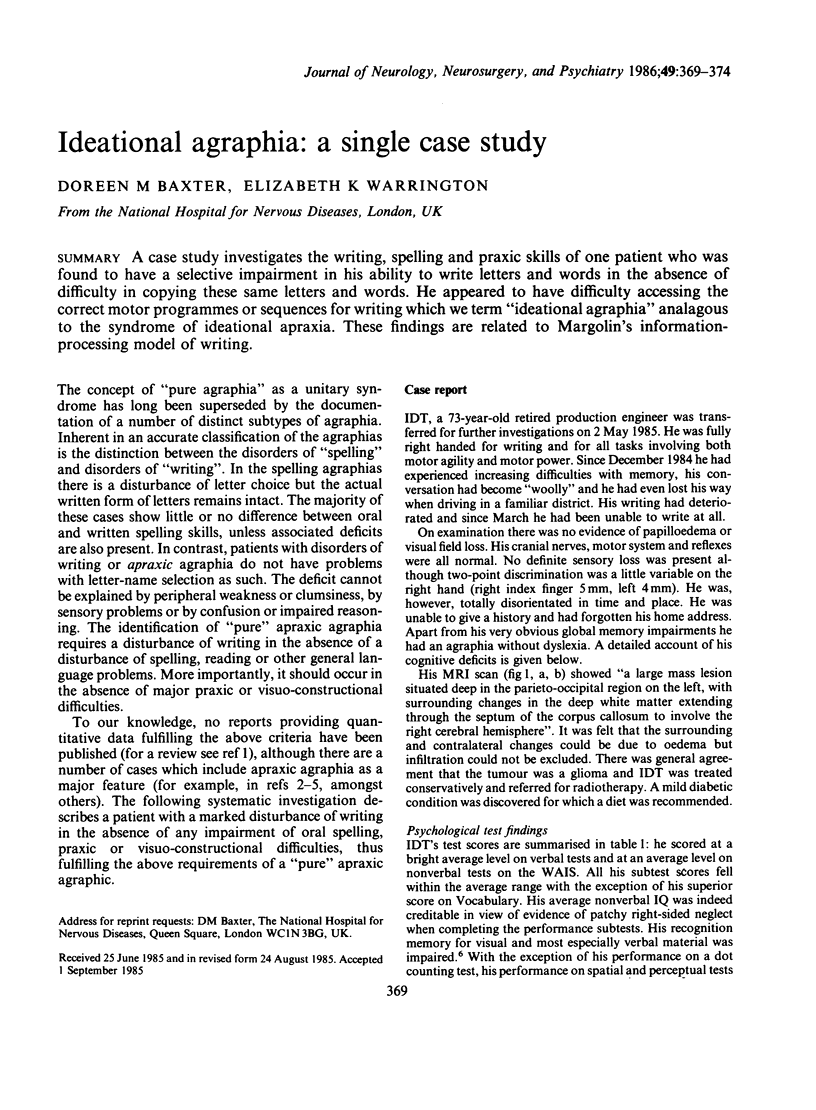
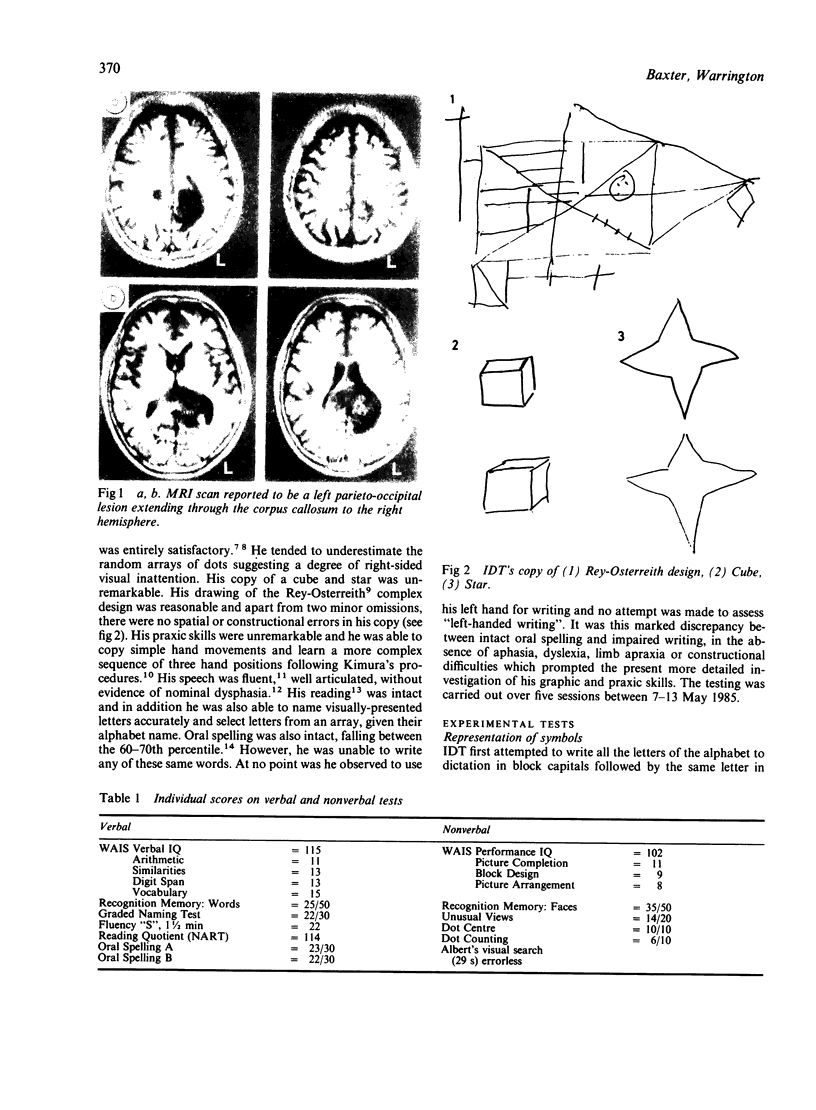
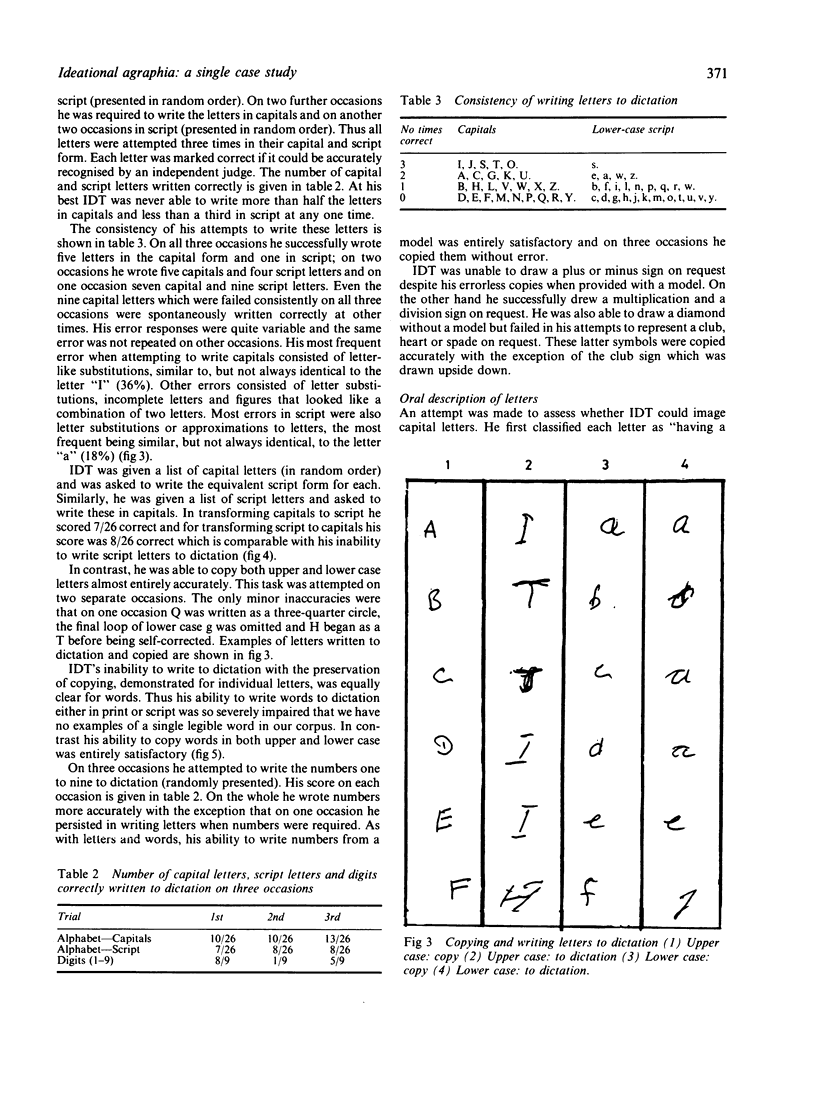
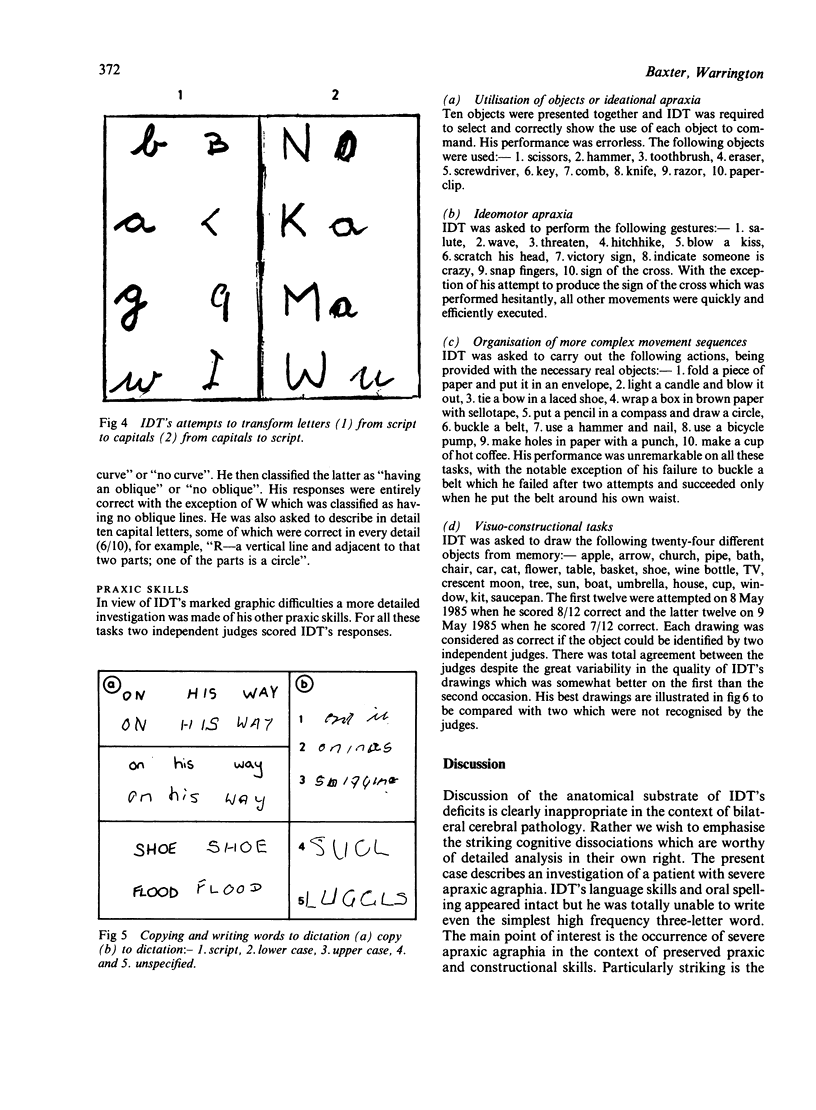
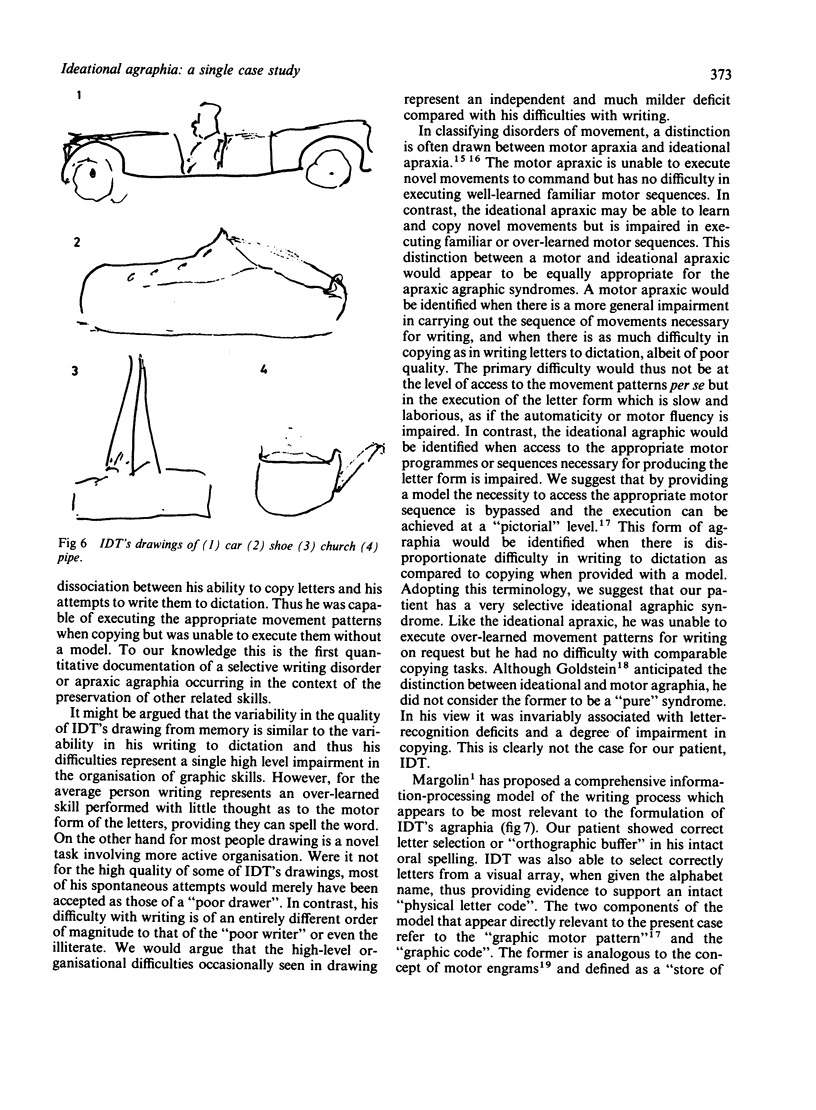
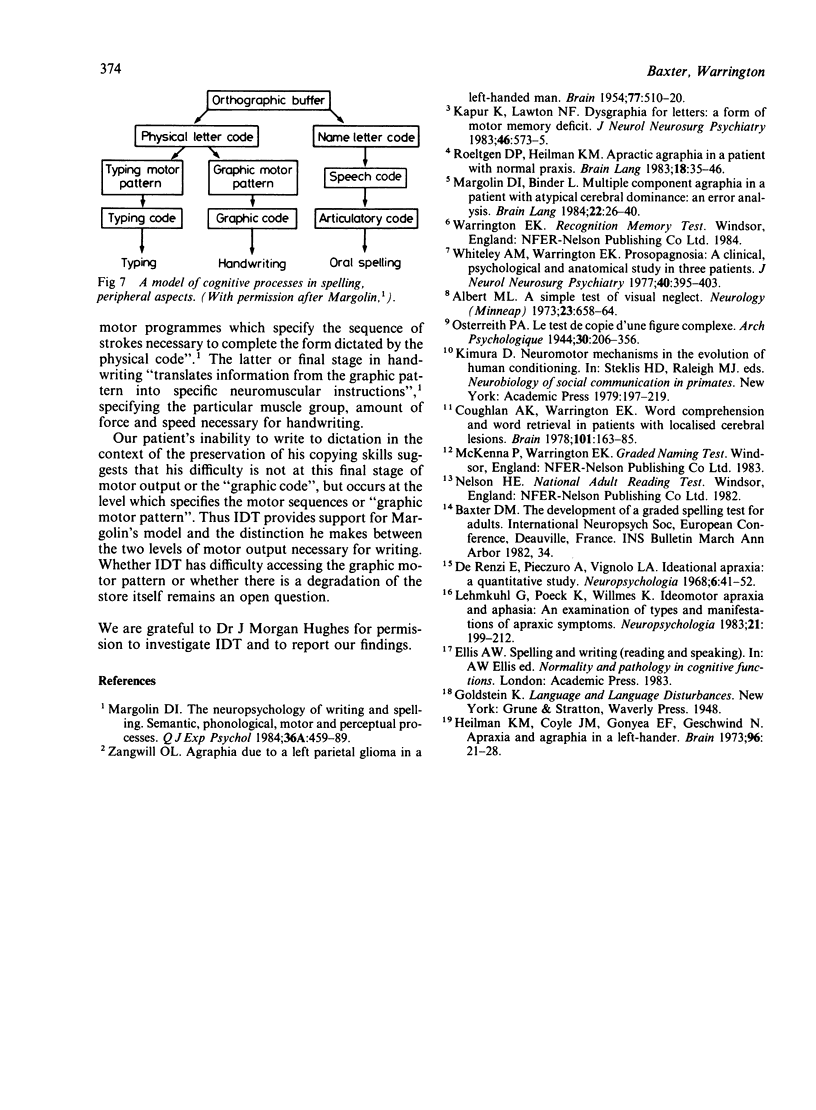
Images in this article
Selected References
These references are in PubMed. This may not be the complete list of references from this article.
- Albert M. L. A simple test of visual neglect. Neurology. 1973 Jun;23(6):658–664. doi: 10.1212/wnl.23.6.658. [DOI] [PubMed] [Google Scholar]
- Coughlan A. K., Warrington E. K. Word-comprehension and word-retrieval in patients with localized cerebral lesions. Brain. 1978 Mar;101(1):163–185. doi: 10.1093/brain/101.1.163. [DOI] [PubMed] [Google Scholar]
- Heilman K. M., Coyle J. M., Gonyea E. F., Geschwind N. Apraxia and agraphia in a left-hander. Brain. 1973;96(1):21–28. doi: 10.1093/brain/96.1.21. [DOI] [PubMed] [Google Scholar]
- Kapur N., Lawton N. F. Dysgraphia for letters: a form of motor memory deficit? J Neurol Neurosurg Psychiatry. 1983 Jun;46(6):573–575. doi: 10.1136/jnnp.46.6.573. [DOI] [PMC free article] [PubMed] [Google Scholar]
- Lehmkuhl G., Poeck K., Willmes K. Ideomotor apraxia and aphasia: an examination of types and manifestations of apraxic symptoms. Neuropsychologia. 1983;21(3):199–212. doi: 10.1016/0028-3932(83)90038-6. [DOI] [PubMed] [Google Scholar]
- Margolin D. I., Binder L. Multiple component agraphia in a patient with atypical cerebral dominance: an error analysis. Brain Lang. 1984 May;22(1):26–40. doi: 10.1016/0093-934x(84)90077-4. [DOI] [PubMed] [Google Scholar]
- Margolin D. I. The neuropsychology of writing and spelling: semantic, phonological, motor, and perceptual processes. Q J Exp Psychol A. 1984 Aug;36(3):459–489. doi: 10.1080/14640748408402172. [DOI] [PubMed] [Google Scholar]
- Roeltgen D. P., Heilman K. M. Apractic agraphia in a patient with normal praxis. Brain Lang. 1983 Jan;18(1):35–46. doi: 10.1016/0093-934x(83)90004-4. [DOI] [PubMed] [Google Scholar]
- Whiteley A. M., Warrington E. K. Prosopagnosia: a clinical, psychological, and anatomical study of three patients. J Neurol Neurosurg Psychiatry. 1977 Apr;40(4):395–403. doi: 10.1136/jnnp.40.4.395. [DOI] [PMC free article] [PubMed] [Google Scholar]
- ZANGWILL O. L. Agraphia due to a left parietal glioma in a left-handed man. Brain. 1954 Dec;77(4):510–520. doi: 10.1093/brain/77.4.510. [DOI] [PubMed] [Google Scholar]



